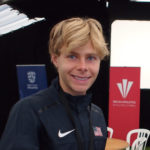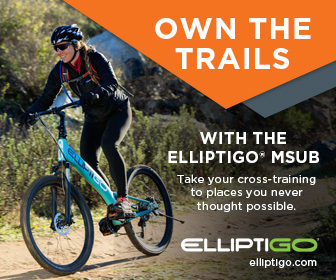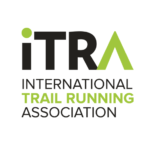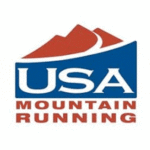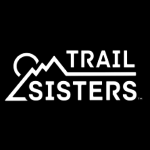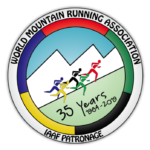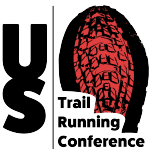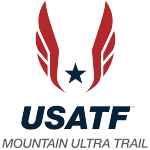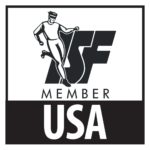
Zachary Friedley is a true inspiration as he creates opportunities for adaptive athletes in the trail running community. Adaptive athletes, or athletes with physical disabilities who compete in competitive or recreational sports, are an underrepresented group who face challenges participating in trail running races.
Friedley, an adaptive athlete born missing his leg above the knee, started the Mendocino Movement, a nonprofit which aims to give “movement opportunities” to individuals with physical disabilities. and has been making a difference in the trail running community by participating in technical trail races and exploring mountains he had never imagined he would one day be running. Adaptive athletes face many barriers of entry to our sport, including lack of access to training and racing opportunities and specific modifications that need to be made for these athletes to participate.
For this article I spoke with Friedley, who shares his insights into what it’s like to trail run as an adaptive athlete and what we can all do to make the trail running community more more inclusive.

[TAYTE POLLMANN] You identify as an “adaptive athlete.” Could you tell us a little bit more about what this means to someone who is unfamiliar with the term?
[ZACHARY FRIEDLEY] The term adaptive athlete refers to someone who has to use some sort of equipment or adaptive motions to do a movement or sport. In my case, that means I use a blade to run. I have been missing my leg above the knee since birth. There are many differently abled adaptive athletes in the world moving their bodies.
[TAYTE] How did you discover trail running? What was your first trail race?
[ZACHARY] I have always wanted to explore mountains and different landscapes on foot but never knew how until my friend Teresa introduced me to trail running. My personal endurance running journey began two years ago at a 5-kilometer race that took me 46 minutes to finish. Shortly after that experience, I upgraded my prosthesis and got the best running leg I’ve ever had, made by Matthew Luetke at Hanger Clinic in Kansas City. Teresa took me to the Born To Run Ultramarathons in Los Olivos, California and I signed up for the 10-mile trail run. I had never run farther than three miles before this race! That run changed my life. It was more than I had expected and I remember crying after crossing the finish line.
[TAYTE] What does trail running mean to you?
[ZACHARY] Trail running is an emotional experience— one of my missions in life is to give more adaptive athletes these kinds of experiences. The more I run, the more opportunities I create to bring others along with me.

[TAYTE] What special considerations do you have when signing up for a trail race as an adaptive athlete?
[ZACHARY] Personally, I like really hard trail runs. At this point in my running career I’ll put myself on any course out there. Even if I have to crawl for some of it (which I have definitely had to do), that’s ok. It’s all part of the race. Most of the time I will look at the elevation profile, terrain, climate, and think about what kind of views I am going to get. Honestly, views might be the biggest factor! I’ll push myself hard to be able to see awesome landscapes by foot. Big views require big work! While I haven’t yet had the experience of having someone pace me on a course, it’s something I’m moving towards so I also consider that when signing up for races.
[TAYTE] Most trail races don’t have categories or make accommodations for adaptive athletes. Is this something you’d like to change?
[ZACHARY] This is a great question. This is something I would love to absolutely change and I am actively working on making accommodations for adaptive athletes in trail races with the American Trail Running Association and other organizations. I think creating visibility for adaptive athletes in the trail running space is a huge opportunity. All people of all abilities deserve the same opportunities to have these life changing experiences on trails. We are working on developing the standards for accommodations for current adaptive athletes running trails, and also working on creating opportunities to bring new adaptive athletes into the sport. Trail races and race directors should be looking at this as an opportunity and excited about what’s coming up for trail racing in the future.
[TAYTE] Trail race director and ATRA advisory board member, Luis Escobar, has worked with you to ensure your ability to participate in his events. Could you tell us more about your relationship with Escobar and how he has helped you participate and feel welcome in this sport?
[ZACHARY] Luis has been amazing. He is one of the first friends I made in trail running. He has made me feel very welcome and given me a sense that I belong in the trail running community. He is truly a great person and an amazing ambassador for trail running. Luis and I are going to be collaborating on several projects in 2022, such as introducing an adaptive friendly trail course to encourage athletes who have never been trail running to participate. We’re excited for the difference we can make in these athletes’ lives!

[TAYTE] Do you feel a need to compete against other adaptive athletes or yourself?
[ZACHARY] I don’t feel any need to compete or strive to beat any times— my own, or anybody else’s. For me, trail running is an amazing way to explore the Earth in a way I had only imagined as a kid. It’s an accomplishment for me to come off of a mountain trail without injury so I can keep on doing what I love. I do think it would be fun to be on a course such as the famous Western States 100-Mile Endurance Run in a few years, and race another above-knee adaptive athlete. The joy in that experience would be in the fact that there would be two of us, maybe someday many of us, out on a course like that. At the end of the day, I am here to elevate others, high-five people along the way, and finish the day injury-free so I can do it all over again.
[TAYTE] What accomplishments are you most proud of?
[ZACHARY] My biggest accomplishment in life so far was going down an unknown path of self discovery when I turned thirty. I was lost, depressed and I had this gut feeling there was a different path in life that I didn’t know about. I left my hometown and set out on a pilgrimage of sorts that took me from the U.S. East coast to deep into the northern California redwoods, to the banks of the Ganges River in Northern India. I met mentors, worked with a shaman, and made communities along the way. Taking that leap into the unknown changed my life.
[TAYTE] Tell us more about your nonprofit Mendocino Movement. What is its mission?
[ZACHARY] The mission of Mendocino Movement Project is to provide equitable movement opportunities to people with physical challenges, through disability advocacy and movement retreats. Through my travels and my own searching, I found that being in service to humanity is my own super power. I looked at life differently now than I did when I was younger. Before my own journey, I always asked what the world could give me. Now, I think about life in the context of, “What do I have to offer the world to help others?” What I have is the ability to share my own experiences and use my own movement (running) to help others who need support and resources to move their bodies. Mendocino Movement Project is the result of me having amazing mentors and a community around me who encouraged— and continue to encourage me— to use my energy for the good of others.
[TAYTE] What are your plans/goals for your running this year?
[ZACHARY] I plan to continue to grow the Mendocino Movement Project through my own personal running journey. I have several races lined up in 2021. In September, I will run the Lake Sonoma 50 Mile and then a Spartan trail race in San Francisco in November. My ultimate goal is to be one of the first adaptive athlete professional trail runners. It’s a personal goal but it also comes hand-in-hand with my work in social justice, equity, diversity, and inclusion (JEDI) within the sport.

[TAYTE] What are your long term running goals?
[ZACHARY] Running the Western States 100-Mile Endurance Run is on my list. I’d also like to get back to India and fulfill a dream of getting prosthetics to people in under-resourced areas.
[TAYTE] You are a brand ambassador for several prominent trail running brands. Could you introduce us to these brands and your experience working with them as an adaptive athlete?
[ZACHARY] I work with the ambassador programs for several brands including Muir Energy, Altra Running and rabbit. I think there is a lot of opportunity moving forward for companies to consider diversifying and working with more differently abled people as part of their paid sponsorship programs. Representation is important and right now adaptive athletes are often underrepresented in the mainstream media. I look forward to continuing to develop new opportunities for sponsorship and visibility for all adaptive athletes moving forward.
You can follow Tayte’s adventures on Facebook, Twitter and Instagram. If you liked this article, read even more of Tayte’s articles on our website.

